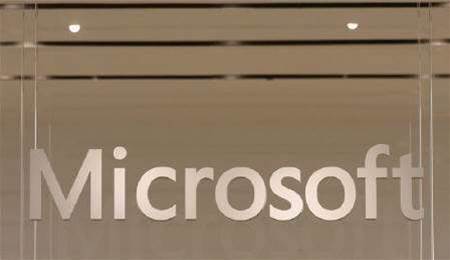Microsoft has urged the US Supreme Court to make it easier to challenge patents as part of its appeal of a record $US290 million ($A276 million) jury verdict for infringing a small Canadian software firm's intellectual property.

An attorney for the software giant argued that the court should reject the long-held requirement that a defendant in a patent infringement case prove by clear and convincing evidence that a plaintiff's patent is invalid.
Thomas Hungar, an attorney for Microsoft, said a lower standard should be used, which could make some patents more vulnerable to legal challenge.
An Obama administration lawyer and Seth Waxman, a lawyer for the Toronto-based i4i, said US Congress has accepted the standard in effect for at least the past 28 years and that it was correct.
The Supreme Court justices questioned the three lawyers closely and gave no clear indication during arguments of how they would rule. A decision is expected by the end of June.
The legal battle stemmed from a federal jury's award to i4i after finding Microsoft had infringed its patent relating to text manipulation software in 2003 and 2007 versions of Word, Microsoft's word processing application.
A U.S. appeals court upheld the award and the U.S. Patent and Trademark Office upheld the validity of the i4i patent. Microsoft continued to dispute those decisions, but removed the contested features from its current software.
In appealing to the Supreme Court, Microsoft said it wanted a new trial.
Justices asked about a Supreme Court precedent from 1934 that could cast doubt on Microsoft's argument. "What do we do?" Justice Elena Kagan asked. "One answer is that we go with our prior precedent."
Justice Ruth Bader Ginsburg also cited the 1934 ruling and asked whether Congress had ever introduced legislation to change the standard. Hungar replied it had not.
Justice Stephen Breyer asked whether the current system protected not only patents that deserve protection, but also those that may not deserve it. "We're trying to get a better tool if possible to separate the sheep from the goats," he said.
The case was heard by eight of the nine Supreme Court members. Chief Justice John Roberts, who owns Microsoft stock, recused himself from the case. If the justices split by a 4-4 vote, then the ruling against Microsoft would be upheld.
The Supreme Court case is Microsoft Corp v. i4i Limited Partnership and Infrastructures for Information Inc, No. 10-290.
(Reporting by James Vicini; Editing by Tim Dobbyn).




_(33).jpg&h=140&w=231&c=1&s=0)






 iTnews Executive Retreat - Security Leaders Edition
iTnews Executive Retreat - Security Leaders Edition
 iTnews Benchmark Awards 2026
iTnews Benchmark Awards 2026
 iTnews Cloud Covered Breakfast Summit
iTnews Cloud Covered Breakfast Summit
 The 2026 iAwards
The 2026 iAwards












_(1).jpg&h=140&w=231&c=1&s=0)



